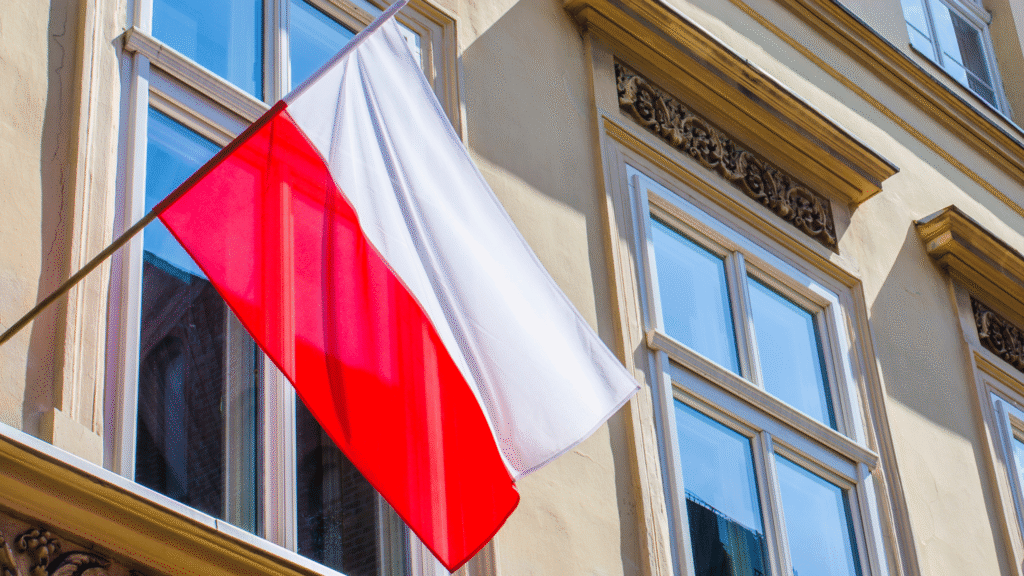Providing the Sacrament of Anointing the Sick against a patient’s will and without one’s knowledge – a case study
Factual state
The patient underwent a planned surgical procedure while in the hospital (cardiac clinic). After the procedure was completed, he was conscious, but it was not possible to establish logical contact with him. The patient took sedative and anticonvulsant drugs, and was put into a drug coma, where he remained until the end of his hospital stay. The hospital’s ministerial chaplain gave him the sacrament of the anointing of the sick while the patient was in a drug coma. A certificate of the sacrament was attached to the medical records. Patient after admission to hospital was not asked whether he wanted to enjoy the opportunity to receive the sacraments according to the rite of the Catholic Church, nor did he declare on his own initiative that he did not want to be subjected to the sacraments. After returning from the hospital, the patient decided to review his medical records and He then learned that he had been administered the sacrament of the anointing of the sick during his stay at the cardiac clinic. Realizing the situation, the patient was outraged, for he He declares himself (despite being baptized) as a non-believer and non-practicing person.
Referring a lawsuit to court
The patient filed a lawsuit against the hospital seeking payment of compensation to him for unlawful violation of his personal rights in connection with the administration of the sacrament of anointing of the sick against his will (he is a non-believer) and without his knowledge (while he was in a pharmacological coma).
The position of the defendant hospital
The hospital stated that the patient’s claim was unfounded, as the patient has not shown that subjecting him to the sacrament caused him harm to his health. According to the hospital, The chaplain exercised due diligence and acted in accordance with canon law, since poor health of the patient (being in a drug coma and risk of death) He justified bearing the sacrament. The chaplain had the right to assume that he was administering the sacrament to a believer (Catholic) since 90% of the Polish population is Catholic.
The decisions of the court of first instance
According to the Court of First Instance, the defendant hospital did not unlawfully violate the patient’s personal rights – the action of the hospital chaplain was in accordance with canon law (canon law dictates that the sacrament should be administered in case of doubt when the patient is unconscious and unable to express his will), as well as with the principles of social intercourse. The chaplain’s behavior was an exercise of a subjective right and took place within the framework of the applicable legal order (circumstances excluding illegality). In the Court’s opinion, the patient, as a baptized person who did not perform an act of apostasy, is a member of the Church and subject to its rules. Bearing in mind that the patient at the time of his admission to the hospital did not inform anyone that he was a non-believer, and later it was impossible to establish the above issue (due to his being in a comatose state) – the chaplain had to act as if the plaintiff was a believer and at the same time wanted the sacrament to be administered to him, as he was in danger of imminent death. According to the court, administering the sacrament of anointing to a non-believer could not have caused him any negative health consequences (both mental and physical).
The decision of the court of second instance
The court of second instance dismissed the patient’s appeal against the judgment of the court of first instance. According to that court, the lack of illegality of the chaplain’s action was not evidenced by the fact that the patient had not formally withdrawn from the Catholic Church and was therefore subject to the rules of canon law, and the chaplain administered the anointing in accordance with the rules of that law. In the opinion of the Court of Second Instance, the prohibition on forced participation in religious activities applies to everyone, and therefore also to a person who formally remains a member of a church or religious group. The conclusion that there was no unlawful violation of the patient’s personal rights (in the form of freedom of conscience) when he underwent the sacrament of anointing of the sick was reached by the Court of Second Instance’s evaluation of the event from the perspective of a reasonable, honest person, taking into account the current state of social relations. In the opinion of the Court of Second Instance, From the perspective of a reasonable person, giving the sacrament of anointing of the sick to a non-believer is completely indifferent to him. The act in question does not aim to cause a change in the patient’s attitude toward religion, or to subject him to religious authority – on the contrary, it is a symbolic act with positive overtones, related to an attempt to support a person whose life is seriously threatened. Trying to help a (incompetent/unwanted) seriously ill person may not show disrespect for him, but empathy. The Court of Second Instance, evaluating the case through the prism of the meaning of the sacrament of anointing, the circumstances under which it was administered and the chaplain’s intentions, found that the act could not be qualified as violating the patient’s freedom of conscience – in the opinion of the Court of Second Instance, this is a minor event.
Supreme Court ruling [1]
The Supreme Court’s approach to the case in question was quite different from that of the common courts. The Supreme Court disagreed with the second-instance court’s ruling and therefore reversed it and remanded the case for retrial.
Practical guidance from the Supreme Court and beyond
- When is there a violation of the personal good of freedom of religion?
Such a situation is the case:
- preventing or obstructing someone from expressing their religious beliefs and performing religious practices,
- to take action against someone as a form of harassment in various spheres of social or professional life because of religious beliefs,
- imposing on someone the obligation to adopt a certain religion or the obligation to perform certain religious practices (the same treatment should be given to subjecting someone against his or her will to acts that constitute a form of religious practice, such as subjecting someone to the sacrament of anointing of the sick – this is not a minor, trivial event that does not merit protection under Art. 23 and 24 KC[2].
- Can a hospital collect information about the worldview and religion of the people it provides services to?
From Art. 53 para. 7 of the Constitution of the Republic of Poland derives from the prohibition of oblige anyone by public authorities to disclose their worldview, religious beliefs or religion. The hospital is not a public authority, but an entity that performs medical activities. Thus, the hospital has the right to obtain the aforementioned. information to the extent that it is necessary to enable patients to exercise the right set forth in Art. 37 of the Law of November 6, 2008. Patient Rights and Patient Ombudsman, and therefore to the patient’s contact with a clergyman in the event of a deterioration of his health or threat to his life. It should be made clear at this point that the aforementioned. The right is not realized by allowing the patient to contact a clergyman of the religion that prevails in the community, but only by contacting a clergyman of that religion of the patient who is in deteriorating health or life-threatening condition.
A hospital wishing to act in accordance with the law should ask the patient (preferably on arrival at the hospital) about this:
- Whether the patient wants to benefit from pastoral care at the facility where he or she is staying,
- whether the patient wishes to contact a clergyman of his or her religion should he or she find himself or herself in deteriorating health or life-threatening conditions, and what that religion is.
Crucially, there can be no presumption that the patient is of the same faith as the majority of the community from which he or she hails (especially when the patient was not asked whether he or she would be willing to receive pastoral care/whether he or she consents to contact with a clergyman should he or she be in failing health or life-threatening conditions, or if the patient refuses to answer these questions).
- Is it possible to include information in the medical record that the sacrament of anointing of the sick was administered to the patient?
Information about the administration of the sacrament to the patient should not be part of the medical record. Medical records refer to the treatment process and are intended to collect data about the patient’s health and the treatment methods used, not his worldview Any inclusion in the medical record of information about the patient’s submission to the sacrament of anointing can only take place with the patient’s consent. This approach is in line with the provisions of the RODOaccording to which data revealing religious beliefs have the status of sensitive data. Indeed, the essence of the special protection of this category of personal data is the prohibition of their processing. However, this prohibition is not absolute – Art. 9 paragraph. 2(a) of the RODO provides that the prerequisite for legalizing the processing of sensitive data is obtaining consent[3].
According to experts from Jabłoński Kozminski Law Firm, health care institutions should develop appropriate procedures in advance, which would ensure patients’ access to pastoral care (including the possibility to contact a clergyman of their religion) and at the same time would comply with constitutional and statutory regulations (especially in the area of freedom of conscience and religion, protection of personal rights or protection of personal data).
[1] Supreme Court judgment of September 20, 2013, II CSK 1/13, Legalis.
[2] Complementing this thread, it is worth mentioning Art. 6 paragraph. 2 of the Law of May 17, 1989. on Guarantees of Freedom of Conscience and Religion (hereinafter referred to as , “ UWSW”), according to which , “It is forbidden to force citizens not to take part in or participate in religious activities or rites,” as well as Art. 27. paragraph. 1 UWSW, which stipulates that , “the activities of churches and other religious associations may not violate the provisions of generally applicable laws protecting public safety, order, health or public morals, parental authority or the fundamental rights and freedoms of others.
[3] D. Karkowska (ed.), Patient Rights and the Patient Ombudsman. Comment, LEX.













Notes from the “other side of the barricade” – reflections of a former in-house lawyer